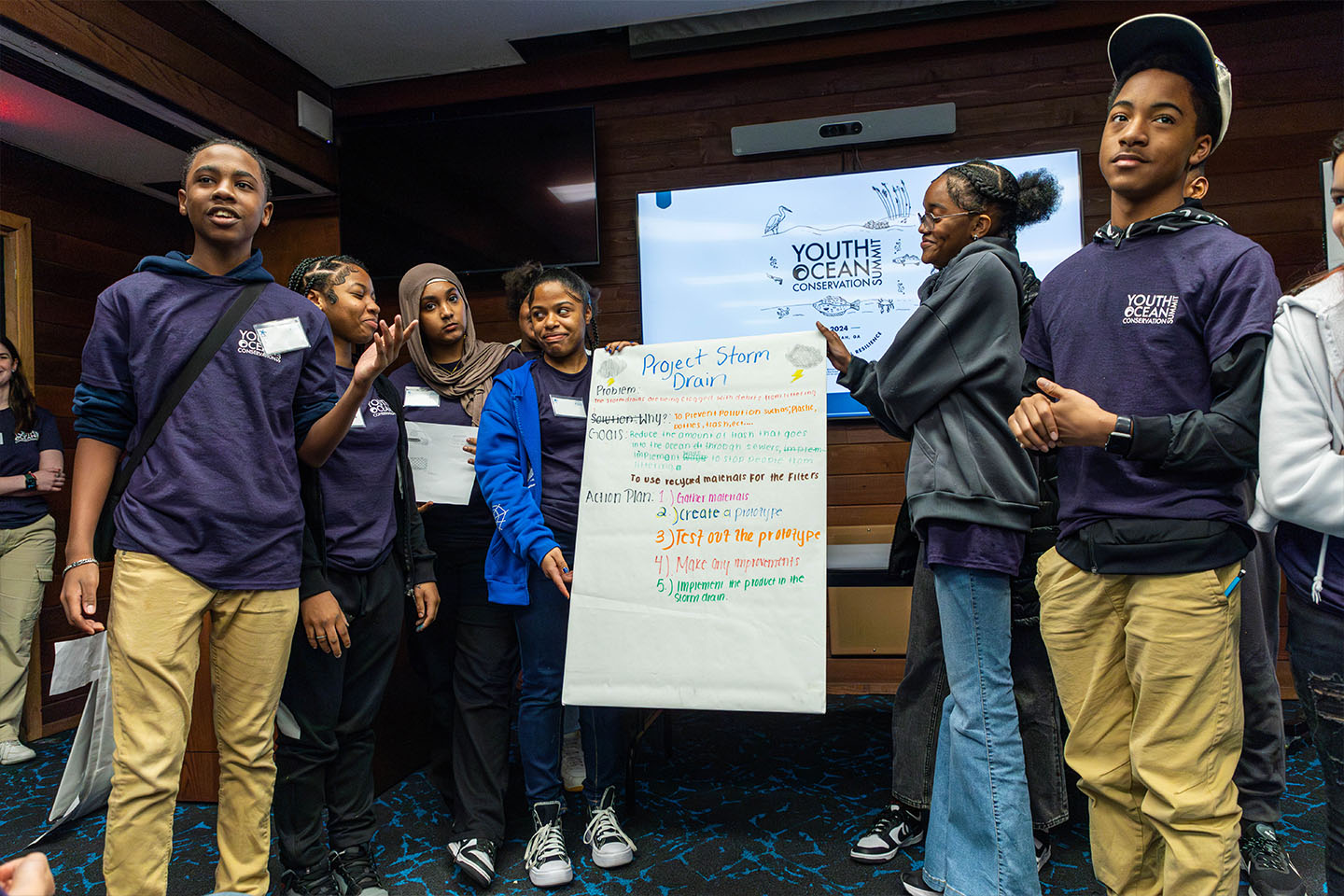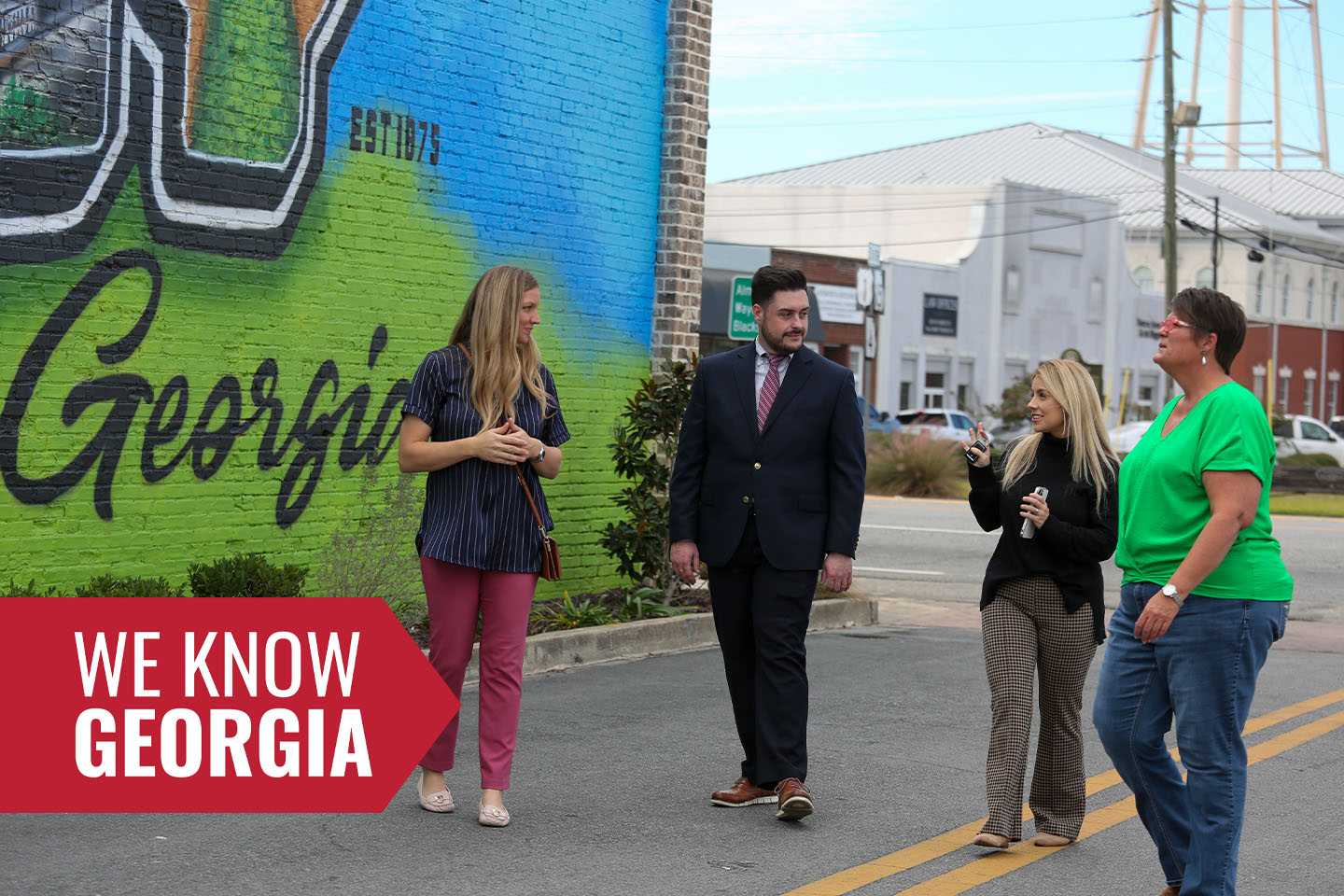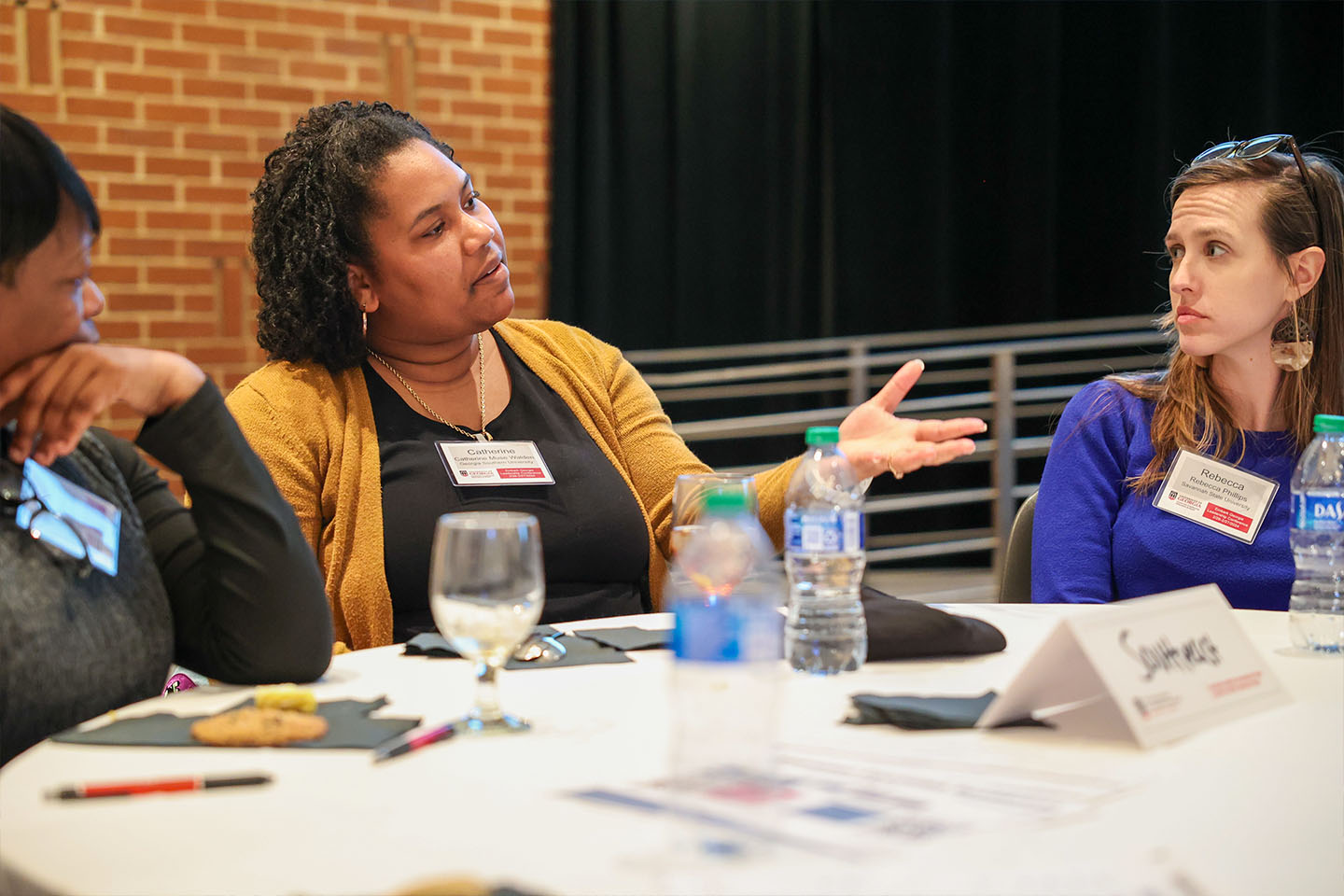For some Georgia residents, the key to quality healthcare isn’t dependent upon the doctor or facility.
It’s dependent upon the interpreter.
“What’s happening here is often a life and death situation,” said Michele Pirkle, executive director of patient family experience at Grady Health System. “We must ensure that the interpreter can not only have a conversation with someone in another language, but they convey very technical medical terminology with no room for error.”
About 50,000 native Koreans live in Gwinnett County. In response to this growing population, the UGA Center for Continuing Education & Hotel, a unit of UGA Public Service and Outreach, began offering the Korean/English Medical Interpreter Certificate (KEMI) in 2012. This 40-hour course meets five Saturdays at the UGA Gwinnett Campus.
Successful completion of the program allows students to work as an interpreter. Although not currently required in the profession, students also would be ready to take a national certification exam, offered either by the National Board of Certification for Medical Interpreters (NBCMI) or the Certification Commission for Healthcare Interpreters. The KEMI was modeled after the highly successful Spanish/English Medical Interpreter Certificate, which has been offered by the Georgia Center for more than a decade.
Medical interpretation is often an overlooked part of healthcare, said Grace Cruz, a Korean-English freelance medical interpreter.
“Often, I interpret between children and parents,” Cruz said. “Parents don’t know English, children don’t know Korean. They can get by in day-to-day conversations, but the actual diagnosis cannot be interpreted by children. When people use a family member, assumptions are made, mistakes are made.”
“The most important thing I teach my students is ethics and culture,” said Cruz. “In sensitive fields like mental health, untrained interpreters don’t know how to convey the questions in a way someone from Korea would understand.”

During the course, Cruz (left) uses role-playing to act out scenarios like a medical examination.
KEMI is unique because it offers one-on-one instruction instead of an online course, like other programs. Students roleplay different scenarios, participate in interactive activities and discuss challenges with Cruz, who’s been practicing as a medical interpreter for 12 years.
While healthcare systems like Grady may rely on video or phone sessions when in-person interpreters aren’t available, the effectiveness of face-to-face interpreters can’t be stressed enough for languages like Korean (languages that rely on visual cues, such as American Sign Language, benefit from having a video option).
“In-person is much different than video, especially if it’s a situation in trauma,” said David Lee, a Spanish and Korean interpreter for Grady Health System. “You need to be really quick and express very clearly what is going on.”
“There are language apps, but we cannot depend on that,” Cruz said. “I’ve seen worst-case scenarios come out of that.”
Cruz and Lee believe the need for this training will increase with the influx of Korean residents.
“The demand is here,” Cruz said. “More and more people are coming over here from Korea, and when they go to the hospital, they will need an interpreter.”
So far 450 people have enrolled in the Korean interpreter program, more than half from Gwinnett County. Others have been from counties near Gwinnett, including Athens-Clarke County.
“Medical interpretation is a facet of healthcare that needs more attention,” Pirkle said. “What interpreters do is a vital piece of the healthcare industry.”
The next Korean-English Medical Certificate program will be offered Sept. 29 – Oct. 27, 2018, at the UGA Gwinnett Campus.
Learn more about the Korean-English Medical Certificate
Find out about other interpreter programs:
www.georgiacenter.uga.edu/courses/languages/interpreting-skills
Writer: Leah Moss, leahmoss@uga.edu, 706-612-0063
Photographer: Shannah Montgomery, smont@uga.edu, 706-542-3638




